Entry Category: Law - Starting with A
Armstrong, J. M. (Execution of)
Arnold, Morris Sheppard “Buzz”
Arnold, Richard Sheppard
 W. H. "Dub" Arnold
W. H. "Dub" Arnold
Arnold, William Howard “Dub”
Arterberry, William (Lynching of)
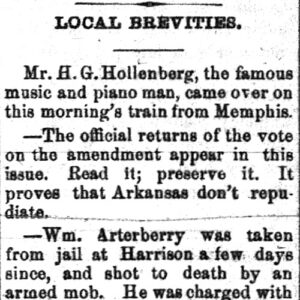 William Arterberry Story
William Arterberry Story
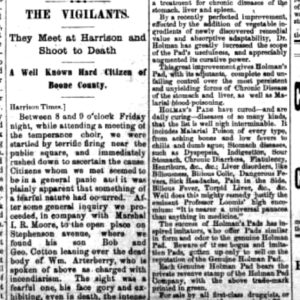 William Arterberry Story
William Arterberry Story
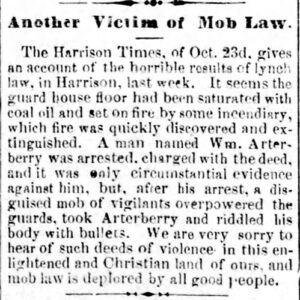 William Arterberry Story
William Arterberry Story
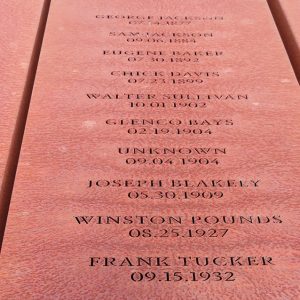 Ashley County Lynching
Ashley County Lynching
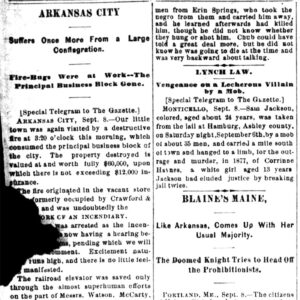 Ashley County Lynching Article
Ashley County Lynching Article
Ashley County Lynching of 1857
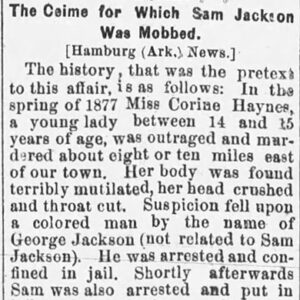 Ashley County Lynching Article
Ashley County Lynching Article
Atkins Race War of 1897
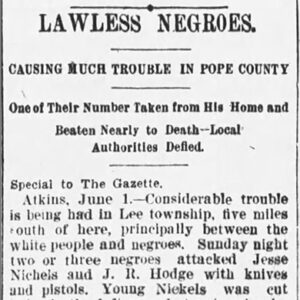 Atkins Race War Article
Atkins Race War Article
Atkins, Jerry (Lynching of)
Atkinson, Richard Bernard
Atkinson, Wash (Lynching of)
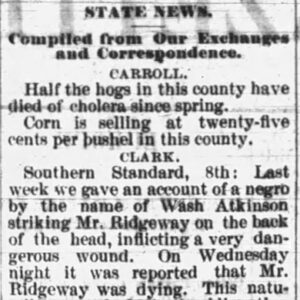 Wash Atkinson Lynching Article
Wash Atkinson Lynching Article
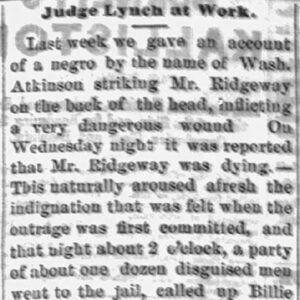 Wash Atkinson Lynching Article
Wash Atkinson Lynching Article
Attorney General, Office of
Austin v. The State
Avery, Andrew (Lynching of)
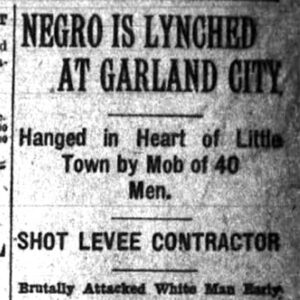 Andrew Avery Lynching Article
Andrew Avery Lynching Article




